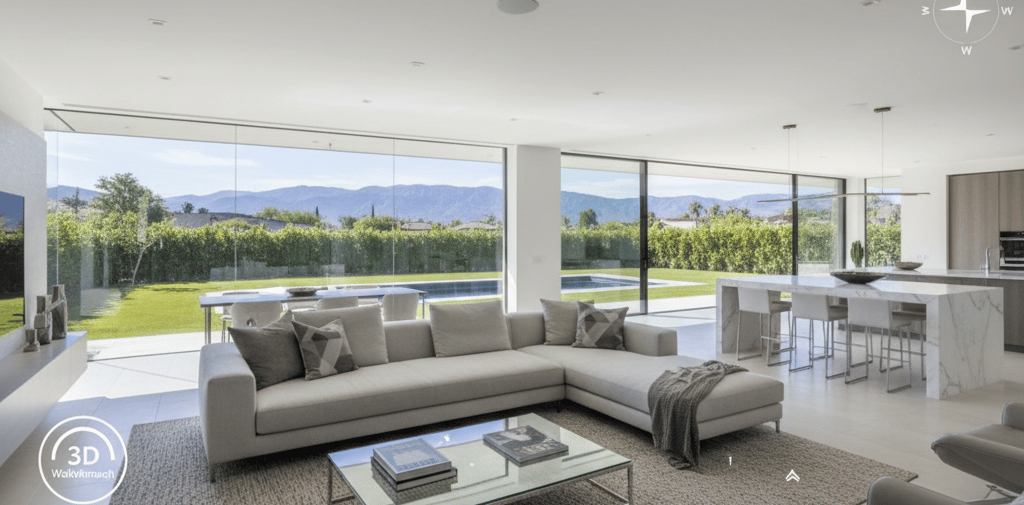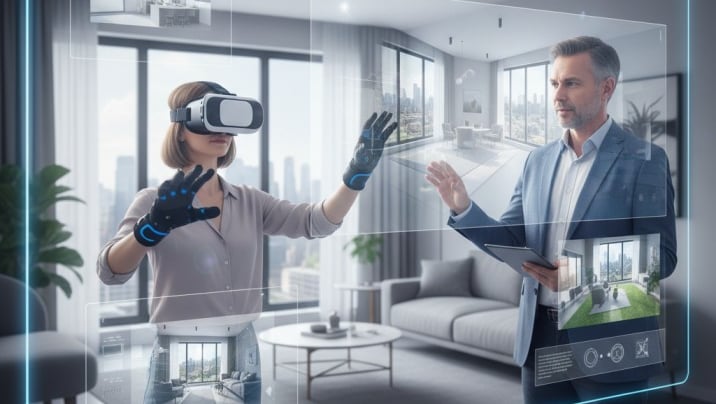

What Exactly is a Real Estate Virtual Tour?
At its core, a real estate virtual tour is an online simulation of a physical property, allowing users to navigate and explore a space from the comfort of their own device. Unlike simple photo galleries or video walkthroughs, virtual tours offer an interactive, 360-degree experience. Imagine being able to "walk" through every room, turn your head to see the ceiling or floor, and even zoom in on specific details – all without setting foot inside the actual house.
These tours typically utilize specialized photography and software to stitch together a series of panoramic images, creating a seamless and immersive digital environment. Some advanced tours even incorporate floor plans, embedded information points, and even virtual staging to enhance the experience further.
The Unrivaled Benefits for Home Buyers .
For potential home buyers, virtual tours are nothing short of a revelation. They address many of the traditional pain points associated with house hunting, offering a more efficient, informed, and enjoyable process.
· Time-Saving & Efficiency: No more wasted trips to properties that don't meet your criteria. Virtual tours allow you to pre-screen dozens of homes in a fraction of the time, narrowing down your list to only those truly worth an in-person visit. This is especially beneficial for buyers relocating from out of town or those with busy schedules.
· 24/7 Accessibility: The housing market never sleeps, and neither do virtual tours. You can explore properties at any time of day or night, from anywhere in the world. This flexibility empowers buyers to move at their own pace and revisit properties as often as they like.
· Comprehensive Understanding: High-quality virtual tours provide a detailed and accurate representation of a property's layout, flow, and features. You can get a genuine feel for the space, preventing surprises and disappointments during physical viewings. You'll know if the kitchen is truly open-concept or if the master bedroom is as spacious as it appears in photos.
· Reduced Stress & Decision Fatigue: The home-buying process can be stressful. Virtual tours help alleviate this by empowering buyers with more information upfront, leading to more confident and less rushed decisions.
· Sharing with Stakeholders: Easily share the virtual tour link with family members, friends, or even contractors for their input, making the decision-making process more collaborative.
How Virtual Tours Empower Home Sellers
While the benefits for buyers are clear, virtual tours offer equally compelling advantages for sellers looking to stand out in a competitive market.
· Increased Exposure & Reach: A property with a virtual tour gains significantly more online visibility. It attracts a wider audience, including out-of-town and international buyers who might not otherwise consider the property.
· Higher Engagement & Qualified Leads: Virtual tours keep potential buyers engaged on your listing for longer, providing a richer experience than static images. This increased engagement often translates into higher-quality leads – buyers who are genuinely interested and have already "vetted" the property virtually.
· Fewer, More Productive Showings: By allowing buyers to pre-qualify themselves, virtual tours reduce the number of casual or unsuited visitors. This means fewer disruptions to your daily life and more productive in-person showings with genuinely interested parties.
· Showcasing the Property's Best Features: Professional virtual tours highlight a home's unique selling points and desirable features in a compelling and interactive way. From stunning views to custom cabinetry, every detail can be showcased effectively.
· Competitive Edge: In a crowded market, a virtual tour makes your listing stand out. It signals to potential buyers that you're a serious seller who embraces modern marketing techniques, making your property more attractive and memorable.
· Faster Sales Cycle: Properties with virtual tours often sell faster because they attract more qualified buyers and streamline the decision-making process.


